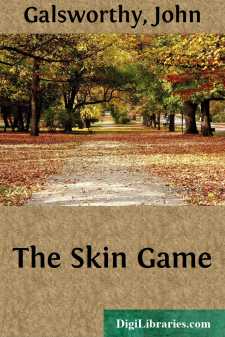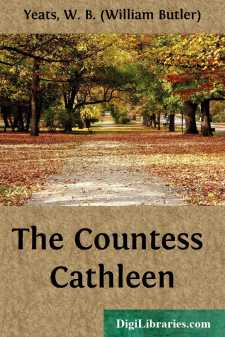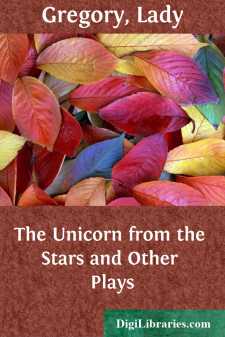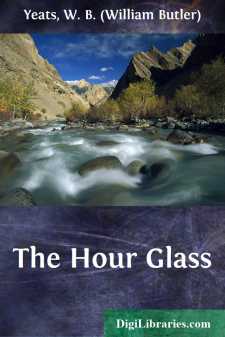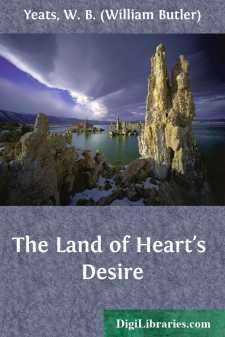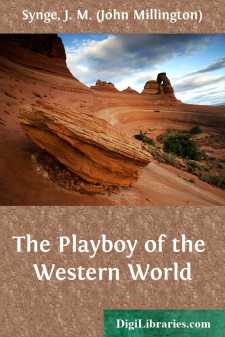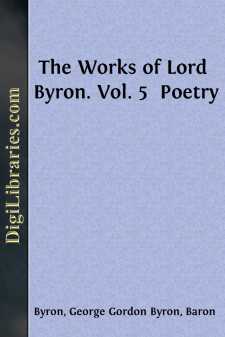Drama
- American 43
- Ancient, Classical & Medieval 45
- Asian 7
- Caribbean & Latin American 2
- Continental European 50
- English, Irish, Scottish, Welsh
- General 105
- Middle Eastern 1
- Religious & Liturgical 1
- Shakespeare 1
English, Irish, Scottish, Welsh Books
Sort by:
by:
John Galsworthy
ACT I HILLCRIST'S study. A pleasant room, with books in calfbindings, and signs that the HILLCRIST'S have travelled, suchas a large photograph of the Taj Mahal, of Table Mountain, andthe Pyramids of Egypt. A large bureau [stage Right], devotedto the business of a country estate. Two foxes' masks.Flowers in bowls. Deep armchairs. A large French window open[at Back], with a lovely view of...
more...
SCENE 1 SCENE—A room with lighted fire, and a door into the open air, through which one sees, perhaps, the trees of a wood, and these trees should be painted in flat colour upon a gold or diapered sky. The walls are of one colour. The scene should have the effect of missal Painting. MARY, a woman of forty years or so, is grinding a quern. MARY. What can have made the grey hen flutter so? (TEIG, a boy...
more...
by:
Lady Gregory
PREFACE About seven years ago I began to dictate the first of these Plays to Lady Gregory. My eyesight had become so bad that I feared I could henceforth write nothing with my own hands but verses, which, as Theophile Gautier has said, can be written with a burnt match. Our Irish Dramatic movement was just passing out of the hands of English Actors, hired because we knew of no Irish ones, and our...
more...
ACT I [Roadside with big stones, etc., on the right; low loose wall at back with gap near centre; at left, ruined doorway of church with bushes beside it. Martin Doul and Mary Doul grope in on left and pass over to stones on right, where they sit.] MARY DOUL. What place are we now, Martin Doul? MARTIN DOUL. Passing the gap. MARY DOUL — [raising her head.] — The length of that! Well, the sun's...
more...
SCENE: A large room with a door at the back and another at the side opening to an inner room. A desk and a chair in the middle. An hour-glass on a bracket near the door. A creepy stool near it. Some benches. The WISE MAN sitting at his desk. WISE MAN [turning over the pages of a book]. Where is that passage I am to explain to my pupils to-day? Here it is, and the book says that it was written by a...
more...
THE LAND OF HEART'S DESIRE SCENE.—A room with a hearth on the floor in the middle of a deep alcove to the Right. There are benches in the alcove and a table; and a crucifix on the wall. The alcove is full of a glow of light from the fire. There is an open door facing the audience to the Left, and to the left of this a bench. Through the door one can see the forest. It is night, but the moon or a...
more...
INTRODUCTION It must have been on Synge's second visit to the Aran Islands that he had the experience out of which was wrought what many believe to be his greatest play. The scene of "Riders to the Sea" is laid in a cottage on Inishmaan, the middle and most interesting island of the Aran group. While Synge was on Inishmaan, the story came to him of a man whose body had been washed up on...
more...
ACT I. SCENE: [Country public-house or shebeen, very rough and untidy. There is a sort of counter on the right with shelves, holding many bottles and jugs, just seen above it. Empty barrels stand near the counter. At back, a little to left of counter, there is a door into the open air, then, more to the left, there is a settle with shelves above it, with more jugs, and a table beneath a window. At the...
more...
ACT IV SCENE I. London. Before the Tower [Enter, on one side, QUEEN ELIZABETH, DUCHESS of YORK, and MARQUIS of DORSET; on the other, ANNE DUCHESS of GLOSTER, leading LADY MARGARET PLANTAGENET, CLARENCE's young daughter.]DUCHESSWho meets us here?—my niece Plantagenet,Led in the hand of her kind aunt of Gloster?Now, for my life, she's wandering to the Tower,On pure heart's love,...
more...
INTRODUCTION TO SARDANAPALUS Byron's passion or infatuation for the regular drama lasted a little over a year. Marino Faliero, Sardanapalus, and the Two Foscari, were the fruits of his "self-denying ordinance to dramatize, like the Greeks ... striking passages of history" (letter to Murray, July 14, 1821, Letters, 1901, v. 323). The mood was destined to pass, but for a while the neophyte...
more...


